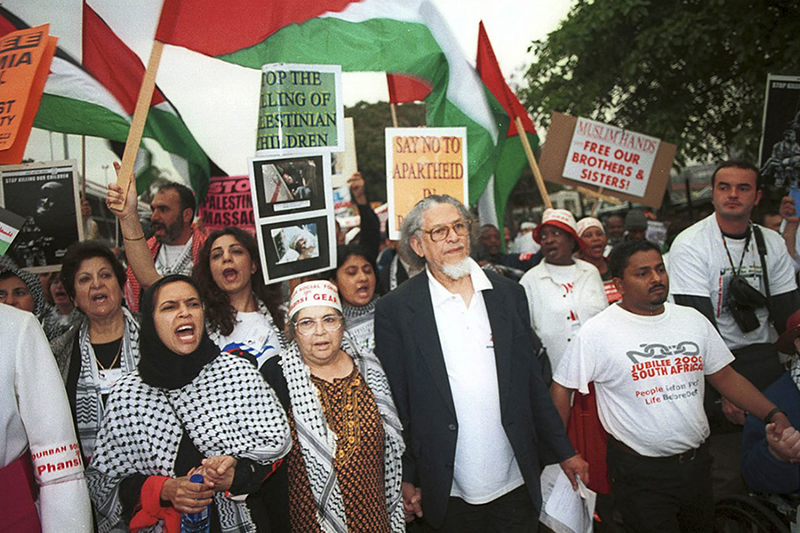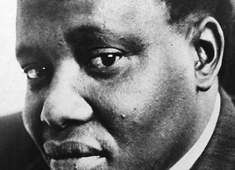Alain Modoux*
On 3 May 2022, the world celebrates for the 29th consecutive time “World Press Freedom Day”, the principle of which was decided by consensus in December 1993 by the United Nations General Assembly. By choosing this date, the Assembly wished to pay tribute to the 60 or so African journalists who, meeting in the capital of Namibia on the initiative of UNESCO and the United Nations, adopted the “Windhoek Declaration on Promoting an Independent and Pluralistic African Press” on 3 May 1991. This founding text, which defines the conditions necessary for the democratic functioning of the media, was the “mother” of four other regional Declarations that resulted from seminars similar to the one held in Namibia. The first one brought together media professionals from Asia (Alma Ata, Kazakhstan, 1992), the second from Latin America and the Caribbean (Santiago de Chile, 1994), the third from the Arab countries (Sana’a, Yemen, 1996) and the fourth from Europe and North America (Sofia, Bulgaria, 1997). The Windhoek Declaration as well as the four other regional Declarations, although openly denouncing the policies and practices of some States vis à vis the media of many countries (without naming them), were adopted, without any modification or opposition, by all UNESCO Member States who unanimously acknowledged that the Windhoek Seminar played a “catalytic role” in the democratization process that marked the international democratic landscape throughout the 1990s.
The lost illusions of the early 1990s
Given the current state of international relations, it is hard to believe that such unanimity was possible on a subject as sensitive as press freedom! Just for the record, the years immediately following the fall of the Berlin Wall on 9 November 1989 were a promising period for democracy and human rights. The multilateral system set up in the aftermath of the Second World War and rapidly undermined by the East/West rivalry had finally found its feet. More peaceful international relations then seemed possible and sustainable. The adoption of “World Press Freedom Day” is probably the most representative illustration of the prevailing optimism at that time. While the control of information had been one of the main issues of the Cold War for more than 40 years, the international community, by adopting the principle of this “World Day”, had managed to agree, and this without opposition, on the importance of a free, independent, and pluralistic press.
“World Press Freedom Day”, an End-to-End African initiative
This unanimity would probably not have been possible without the resolute and continued commitment of African diplomats, collectively at UNESCO, within the Africa Group chaired by the Ambassador of Niger, Lambert Messan, and individually at ECOSOC in Geneva, a UN body responsible, inter alia, for making recommendations to the General Assembly. The African diplomats convinced their colleagues that the idea of establishing a “World Press Freedom Day” was born in Africa and that it would be carried through to its conclusion by Africans. In New York, it was enough for the Namibian Ambassador to the UN to call on all his colleagues to support the ECOSOC recommendation for it to be adopted without discussion by the General Assembly.
This “diplomatic ownership” of the Windhoek legacy by Africans was key to the success of the entire process. Furthermore, the approach of dealing with the highly sensitive issue of press freedom region by region, starting with Africa, helped to “de-westernize” the perception of the South on this issue. In this respect, African journalists and diplomats played their leadership roles perfectly. Impressed by these expressions of support from all continents, Ambassador Messan did not hesitate to state solemnly that “the Windhoek Declaration is Africa’s contribution to the edifice of human rights”. When asked about his delegation’s position on the proposal to declare 3 May “World Press Freedom Day”, the Chinese representative to the UNESCO General Conference replied that “as long as the proposal came from the Africa Group, his delegation could not but support it”. That was 30 years ago!
*Alain MODOUX was former Assistant Director-General of UNESCO for Freedom of Expression, Democracy and Peace. In this article he recalls how he supported the African diplomats in steering the process through Unesco for two and a half years. This led to the United Nations General Assembly proclaiming 3 May “World Press Freedom Day”. In 2002, Modoux was awarded UNESCO’s Taïno Medal for his “outstanding contribution” to the creation of this Day. This article can be republished with acknowledgement to The Journalist, www.thejournalist.org.za.
Who was Ambassador Lambert Messan?

Lambert Messan (born September 20, 1940 in Niamey; † July 12, 2013) was a diplomat from Niger. He was ambassador to Belgium and Canada and a UNESCO official.
After primary schools in Niamey, Lambert Messan attended normal school in Tahoua from 1955 and normal school in Bingerville from 1957. He originally wanted to be a math teacher. After completing his baccalaureate, he began to study at the University of Caen in France. There he had a serious traffic accident in 1965. After several years of hospital treatment, he remained a wheelchair user for the rest of his life. Messan entered the public service in 1968 and became press secretary at the Nigerien embassy in Paris. At the same time he resumed his studies and graduated in 1973 from the University of Paris-Nanterre in both economics and education. In 1974 he received a diploma from the Paris Institute international d’administration publique and was promoted to Counselor – first in Paris, then in Brussels. On January 10, 1977 Lambert Messan was appointed Niger’s ambassador to Belgium and to the EEC. He successfully endeavored to get Niger to chair the IAEA Board of Governors in Vienna for the first time. On October 17, 1980, he moved to Canada as ambassador. After the death of Head of State Seyni Kountché in 1987, Messan became Niger’s permanent delegate to UNESCO in Paris, which he remained until his retirement in 1999. He campaigned for Niger to be included in the UNESCO World Heritage List, which included the Aïr and Ténéré nature reserve in 1991. He was also the initiator and a co-author of the UNESCO resolution that declared May 3rd International Day of Press Freedom. From 1993 to 1995 and from 1995 to 1997 he was a member of the Executive Council of UNESCO and from 1993 to 1999 a member of the World Heritage Committee. Messan died after a long illness and was buried in Niamey Christian cemetery in 2013.
The Journalist has not been able to do its own research on the life of Ambassador Messan. The text above is from Wikipedia.










